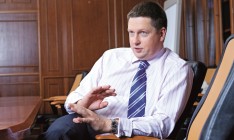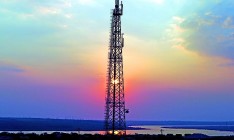Technology
forecastsRegulator scared off contenders for 3G communication

The outgoing year on the telecom market was notable for a 3G tender announcement epic. A full-fledged launch of third generation communication in the country was one of the main clauses of the PR campaign of the new president. Tenders for the frequencies were scheduled to be held before the end of October. However, they were postponed.
The price that operators will have to pay for new frequencies has become the main bone of contention. The state’s appetites increased in the process. In July, Deputy Head of the Presidential Administration Dmytro Shymkiv assured that the budget will earn up to UAH 3 bn in proceeds from licenses and the Ministry of Defense will earn UAH 2 bn from modernization of the communications systems, which will have to be transferred from the 2 GHz range to alternative frequencies. The key contenders for 3G – Kyivstar and MTS Ukraine – also announced their readiness to spend UAH 1 bn for the licenses. At that stage the possibilities of the market and the requirements of the government more or less coincided. However, already by the end of August it became clear that the opinions of the officials and operators deviated and that somebody was possibly intentionally dragging out the process.
Legend about Akhmetov
The Cabinet of Ministers entered the game not in its entirety, but Premier Arseniy Yatsenyuk and his entourage did. An idea was thrown into the telecom community that the three mobile operators should not be issued licenses at the prices and terms they demanded. The licenses should be issued in turns – the first one now and the rest over the next three years. This was allegedly done to bring to the national budget maximum proceeds. In addition to that the Cabinet came up with the idea that the operators in which Russian companies own a substantial stake should not be admitted to participation in the tender. Kyivstar and MTS Ukraine fell under this limitation. In this case, Astelit (life:)) controlled by the Turkish holding company Turkcell (56%) and Rinat Akhmetov (44%) would be the only real and “unstained” bidder at the auction. Rumors appeared that the latter maintains his influence on Yatsenyuk’s advisors and in this way is trying to preserve the value of his operator TriMob, which is the only 3G operator in the country. Noteworthy, SCM has been studying the opportunity of selling this asset to Kyivstar or MTS for several years.
Yatsenyuk: 3G in good hands
Despite that, the presidential and government forces managed to reach the first compromise in September. The parties agreed that the three licenses would be issued simultaneously. However, their starting price would be increased to UAH 2 bn for each. In addition, the operators will pay for the conversion of military frequencies, which is another UAH 1.6 bn. A month later the cost of the license was raised to UAH 2.4 bn and another month after that – to UAH 2.7 bn. Officials attributed this to the devaluation of the hryvnia.
The situation is still unclear regarding the ban of “pro-Russian” companies participating in the tender. Yatsenyuk literally became famous on the telecom market thanks to his emotional statement: “I am ready to give one license even for one hryvnia so that there is no monopoly in this sector, but instead bona fide European companies.” The European operators, however, have not yet expressed their interest.
In the beginning of December only the daughter company of a Vietnamese telecom holding Viettel appeared in Ukraine. Its representative announced that the company is interested in participating in the tender. Market players, however, expressed great doubts about whether the new player would be able to develop a nationwide network. Be that as it may, the sword of Damocles is still hovering over operators backed by Russian capital. In the conditions of issuance of licenses it is specified that even if such a player wins the tender the government has the power to recall the license at any moment for the purpose of national security.
Slightly overdone
Interestingly enough, officials are charging a high price and made the conditions of the tender so complicated that it has become more beneficial for the main contenders for a 3G license to acquire it from Akhmetov. “It is possible that the owners will continue their attempts to sell the company, because at the moment the cost of TriMob is the same as the price for a license on tender,” General Director of MTS Ukraine Ivan Zolochevskiy told Capital.
In his turn, a member of the Supervisory Board of Ukrtelecom says the sale of TriMob is one of the options. Noteworthy, relations between Ukrtelecom and MTS Ukraine have clearly improved as of late. The fact that starting from the New Year TriMob’s subscribers will be serviced in national roaming in the 2G network not of Kyivstar, but that of MTS confirms this fact. Indeed, MTS can be considered one of the most probable buyers of the 3G asset of SCM and the National Commission for the State Regulation of Communications and Informatization clearly felt this.
Tricky move
Head of the regulator Oleksandr Zhyvotovskiy took unprecedented measures. He sent a complaint to the Prosecutor’s General Office, where he informed that the NCSRCI illegally re-registered Ukrtelecom’s 3G license to its daughter company TriMob in 2011. PGO, without giving it much consideration, submitted a claim to the regulator and also TriMob demanding that the license be returned and then reissued at the market price, specifically at the price mentioned in the new tender.
Such unusual behavior of the head of the regulator (factually the commission initiated a claim against itself) put him at odds not only with the management of Ukrtelecom, but also stirred up disagreements inside the commission. Several members of the NCSRCI told Capital that they do not share the position of their boss. Meanwhile, the commission is a collegial body, where all decisions must go through the voting procedure and not be approved upon the initiative of the head. The court in its latest session also became interested in this detail. Unofficially, top managers of Ukrtelecom told Capital that Zhyvotovskiy openly hinted them that the company will not allow the disruption of the 3G auction with the sale of TriMob. “He is fulfilling his main task of collecting a minimum of UAH 9 bn at any cost. All other issues are of little interest for him,” claims one of the managers of Ukrtelecom on condition of anonymity.
3G license not affordable for all
The insistent desire of the regulator to get as much money as possible in conditions of the economic crisis may lead to overall disappointment. Key contenders have not yet made the final decision about their participation in the announced tender, which should be completed in the middle of February. “I must want stress that we have not yet decided whether to participate in the 3G tender… we do not yet have the decision of the board of directors,” said Kyivstar President Petro Chernyshov. He added that the shareholders were taken aback by the announced price.
“We made our own calculation by taking the indicators of the same six neighboring countries that the NCSRCI did and we calculated that one license should cost from US $60 mn to US $90 mn in Ukraine,” said Chernyshov. This is 2-3 times lower than the minimum price of the license approved by the Cabinet.
The situation in MTS is the same. “In the format and in the political and economic conditions in which the operators will participate in 3G development the project looks like practically a stranded cost,” says Zolochevskiy. It is also very difficult for him to convince shareholders to participate in the tender. In order to split the risks of license revocation MTS (which currently has Russian capital) even began negotiations on attracting a western co-investor into the 3G project. However, according to the information that Capital possesses, the parties are still a long way from finalizing the agreements.
The third candidate – Astelit (life:)) – is in an even more difficult situation. The company is suffering from currency debts to its shareholders in conditions of the rapid devaluation of the national currency. The financial liabilities condemn life:) to multi-million losses. The operator is unlikely to have enough of its own funds to buy the license. Now everything depends on the decision of the main investor Turkcell and whether it will be ready to further subsidize Ukrainian business.
Either expensive 3G or networks with holes
If one were to still assume that the key candidates will acquire licenses in February, there are two main scenarios of the further development of events. The first one is market-based. Operators will considerably raise the rates for mobile Internet access and, possibly, for basic voice services and turn 3G into a commercial project with an investment return period of 3-5 years. “The high price for the license will force players to radically change their pricing policy on the market,” assures Zolochevskiy.
Chernyshov adds that he would want that 3G subscribers spend on average 30% more per month than now. However, if the Anti-monopoly Committee again prohibits a hike in rates for mobile communications as a socially important service, the companies are likely to develop Plan B or a depressive option. It is difficult to say what it will be specifically, but its main feature will be economizing on the quality of communications.
The operators will cover only economically profitable cities with populations over one million with the new network and will install rare base stations in other populated areas for the sake of appearance in order to avoid their license from being revoked. By the way, Chernyshov already hinted that if the regulator does not allow them to additionally use the existing frequencies for which they pay over UAH 0.5 bn per year for 3G, the villages and towns with populations lower than 50,0000 are not likely to ever see 3G in their lifetime.






 of the agreement of syndication with Financial Times Limited are strictly prohibited. Use of materials which refers to France-Presse, Reuters, Interfax-Ukraine, Ukrainian News, UNIAN agencies is strictly prohibited. Materials marked
of the agreement of syndication with Financial Times Limited are strictly prohibited. Use of materials which refers to France-Presse, Reuters, Interfax-Ukraine, Ukrainian News, UNIAN agencies is strictly prohibited. Materials marked  are published as advertisements.
are published as advertisements.